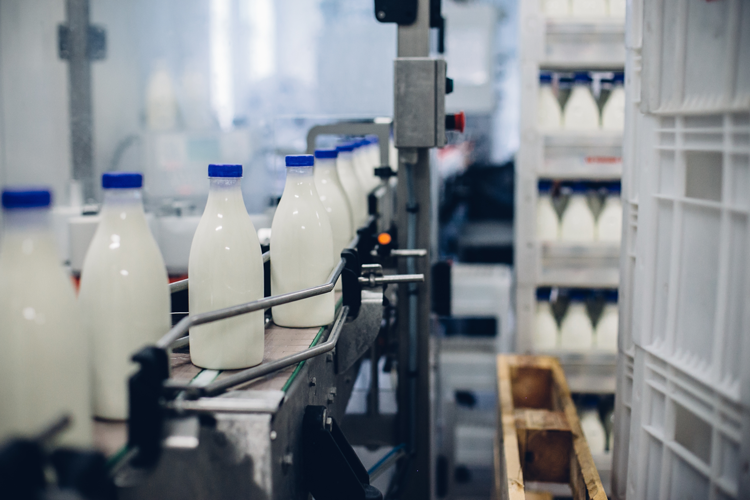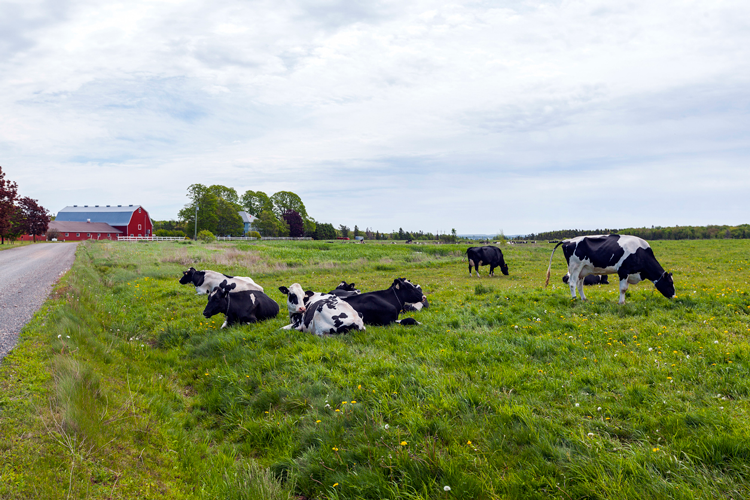 By Miquela Hanselman
By Miquela Hanselman Biosecurity may be more top-of-mind than ever in dairy herds in light of how industry practices are changing in reaction to the presence of the H5N1 virus in dairy cows. The National Dairy Farmers Assuring Responsible Management (FARM) Biosecurity Program has resources that can support dairy farmers as they face evolving animal care challenges.
The FARM Program launched its Biosecurity Program in 2021 via a cooperative agreement with the USDA National Animal Disease Preparedness and Response program. FARM Biosecurity builds on the existing FARM Animal Care Program and Secure Milk Supply (SMS) Plan, providing resources focused on protecting cattle and employee health.
The program includes both everyday biosecurity practices as well as enhanced biosecurity resources. The FARM Everyday Biosecurity Program focuses on preventing disease introduction and spread by building on the good husbandry practices dairy farmers have long included in animal care. Everyday biosecurity practices protect against common diseases like contagious mastitis, respiratory infections, and scours.
Enhanced biosecurity brings the practices developed under the SMS Plan into the FARM program. Though FARM Enhanced Biosecurity was developed to help ensure continuity of business during a foot and mouth disease outbreak, the concepts can help protect against other known disease threats, such as the current highly pathogenic avian influenza (HPAI) outbreak in dairy cattle.
Take steps now
We are still learning about how HPAI virus spreads among cattle, with more information expected as testing ramps up and federal agencies begin isolating data patterns. Below are some every day and enhanced biosecurity focus areas that help against the spread of many known diseases in cattle. These measures may also help prevent HPAI virus exposure to cattle and the people who care for them. Great first steps are identifying a line of separation, limiting animal movement as much as possible, using premovement testing, and having logs of visitors, deliveries, and animal movements.
Protecting the dairy from exposure:
- Minimize access of wild birds to cattle and their environment.
- Manage movements of cattle and their transport.
- Limit livestock contact to essential people.
Preventing cattle or calf exposure:
- Avoid feeding raw colostrum or milk to calves, cattle, and other mammals.
- Follow good milking practices.
- Separate new or returning animals and isolate sick animals.
- Sanitize milking equipment after use with new, returning, or sick cattle.
Precautions for animal caretakers:
- Avoid consuming unpasteurized (raw) milk and cheeses from suspect or confirmed HPAI cattle.
- Wear protective gear covering the eyes, nose, mouth, and hands when contacting infected animals, carcasses, milk, or manure.
The enhanced biosecurity prep guide and online training include key biosecurity concepts that can be used during the H5N1 outbreak.
Good biosecurity takes time and practice to be effective, but as current challenges show, more attention to it will be critical to our industry today and tomorrow. Building everyday practices into your routine and having an enhanced biosecurity plan can protect your animals, employees, and business from disease threats.
Visit nationaldairyfarm.com to learn more about biosecurity and access resources, and visit nmpf.org/hpai for the latest updates on HPAI in cattle.
This column originally appeared in Hoard’s Dairyman Intel on June 3, 2024.

 After two years of hearings, listening sessions, and discussions, members of Congress are now making 2024 Farm Bill proposals. House Agriculture Committee Chairman GT Thompson, R-PA, and Senate Agriculture Committee Chairwoman Debbie Stabenow, D-MI, both began the month by releasing their initial farm bill framework documents and priorities.
After two years of hearings, listening sessions, and discussions, members of Congress are now making 2024 Farm Bill proposals. House Agriculture Committee Chairman GT Thompson, R-PA, and Senate Agriculture Committee Chairwoman Debbie Stabenow, D-MI, both began the month by releasing their initial farm bill framework documents and priorities.
 By contrast, the major hearing participants representing processors opposed most of the hearing’s 21 proposals, including NMPF’s proposals to raise the Class III and Class IV skim milk component composition factors, remove barrel cheese from the protein component price formula, and update the Class I differentials to reflect current costs of supplying milk for fluid processing. Advocacy by proprietaries focused primarily on just two issues: the particularly high profile matters of the make allowances and the Class I mover.
By contrast, the major hearing participants representing processors opposed most of the hearing’s 21 proposals, including NMPF’s proposals to raise the Class III and Class IV skim milk component composition factors, remove barrel cheese from the protein component price formula, and update the Class I differentials to reflect current costs of supplying milk for fluid processing. Advocacy by proprietaries focused primarily on just two issues: the particularly high profile matters of the make allowances and the Class I mover. By Jaime Castaneda, Executive Vice President, Policy Development & Strategy, National Milk Producers Federation
By Jaime Castaneda, Executive Vice President, Policy Development & Strategy, National Milk Producers Federation
 Stakeholder engagement and participatory research continue to be essential as FARM ES begins the work to integrate the RuFaS model. A working group composed of farmers and staff from dairy cooperatives and processors meet with RuFaS researchers to discuss the scientific model and tool functionality. The multi-stakeholder working group has met seven times so far, covering the animal, manure, feed, energy, and economic RuFaS modules and giving feedback on the structure of data inputs, desired functionality for the new FARM ES tool, and more.
Stakeholder engagement and participatory research continue to be essential as FARM ES begins the work to integrate the RuFaS model. A working group composed of farmers and staff from dairy cooperatives and processors meet with RuFaS researchers to discuss the scientific model and tool functionality. The multi-stakeholder working group has met seven times so far, covering the animal, manure, feed, energy, and economic RuFaS modules and giving feedback on the structure of data inputs, desired functionality for the new FARM ES tool, and more.



